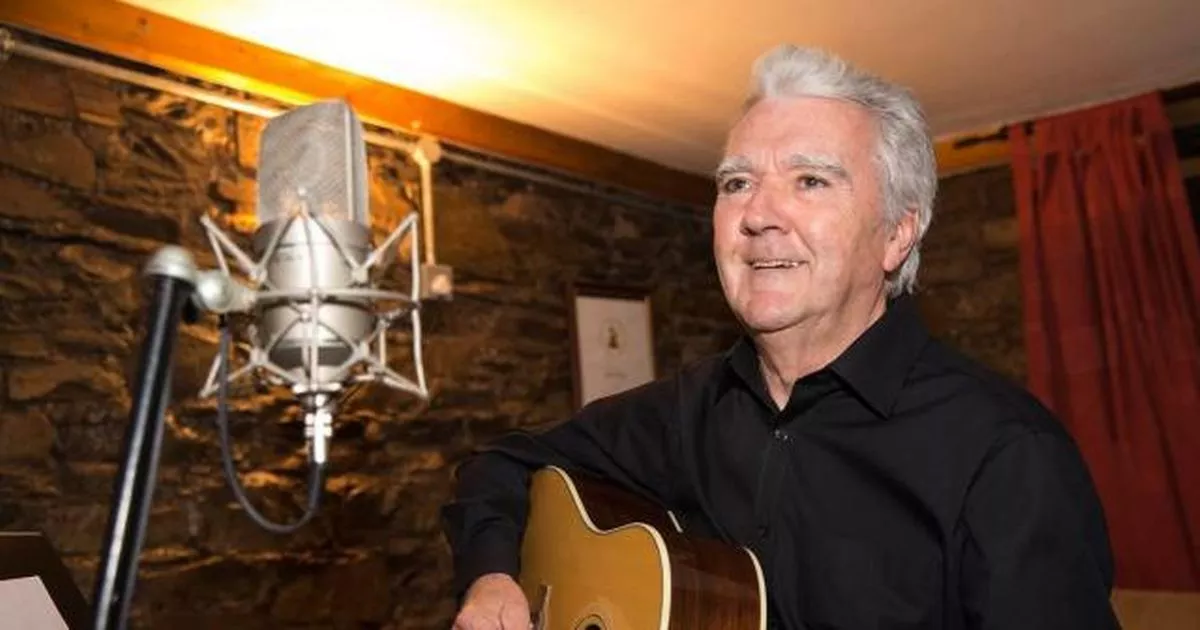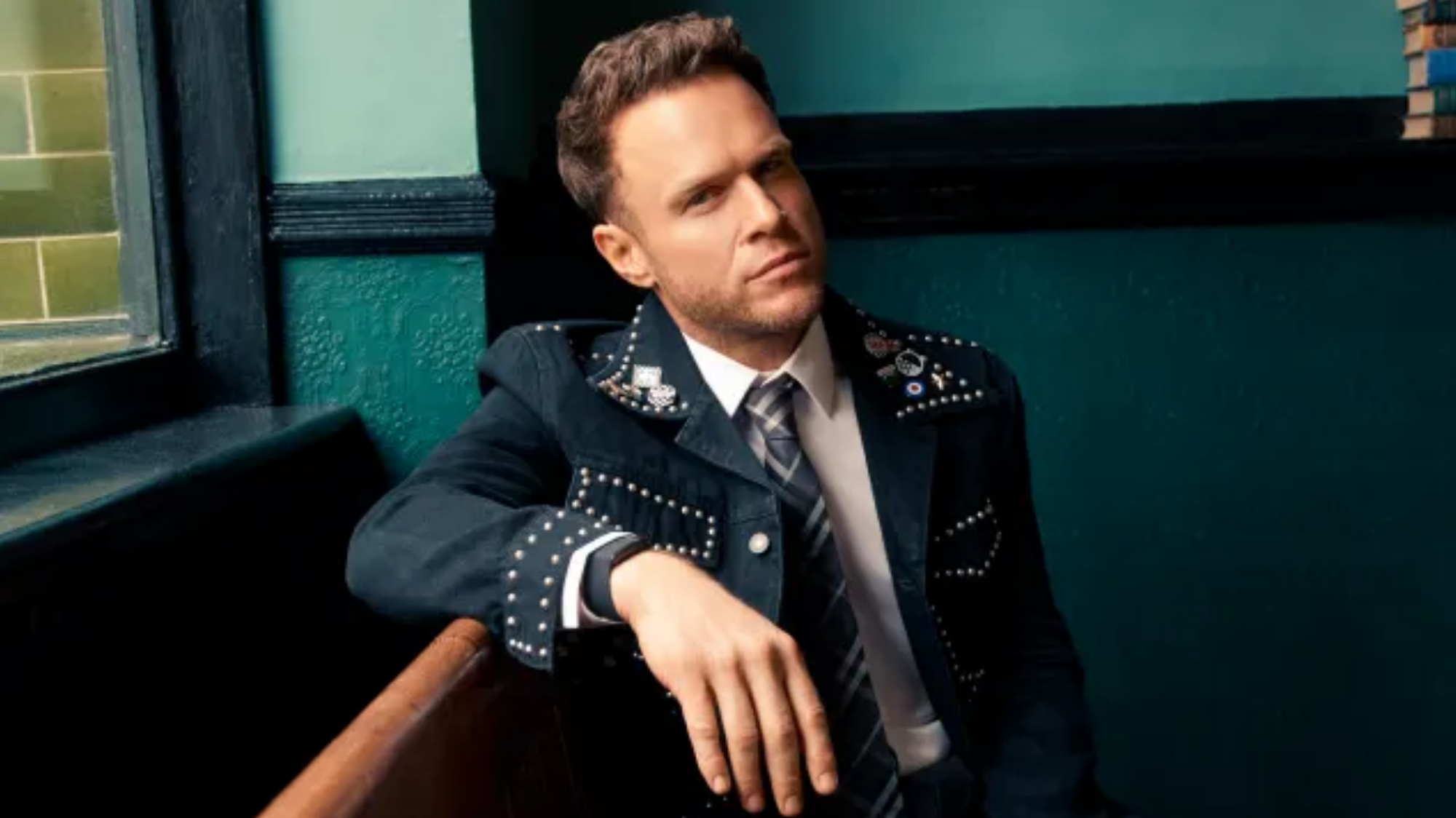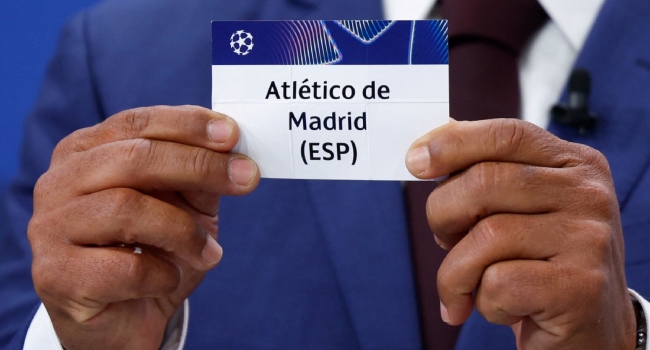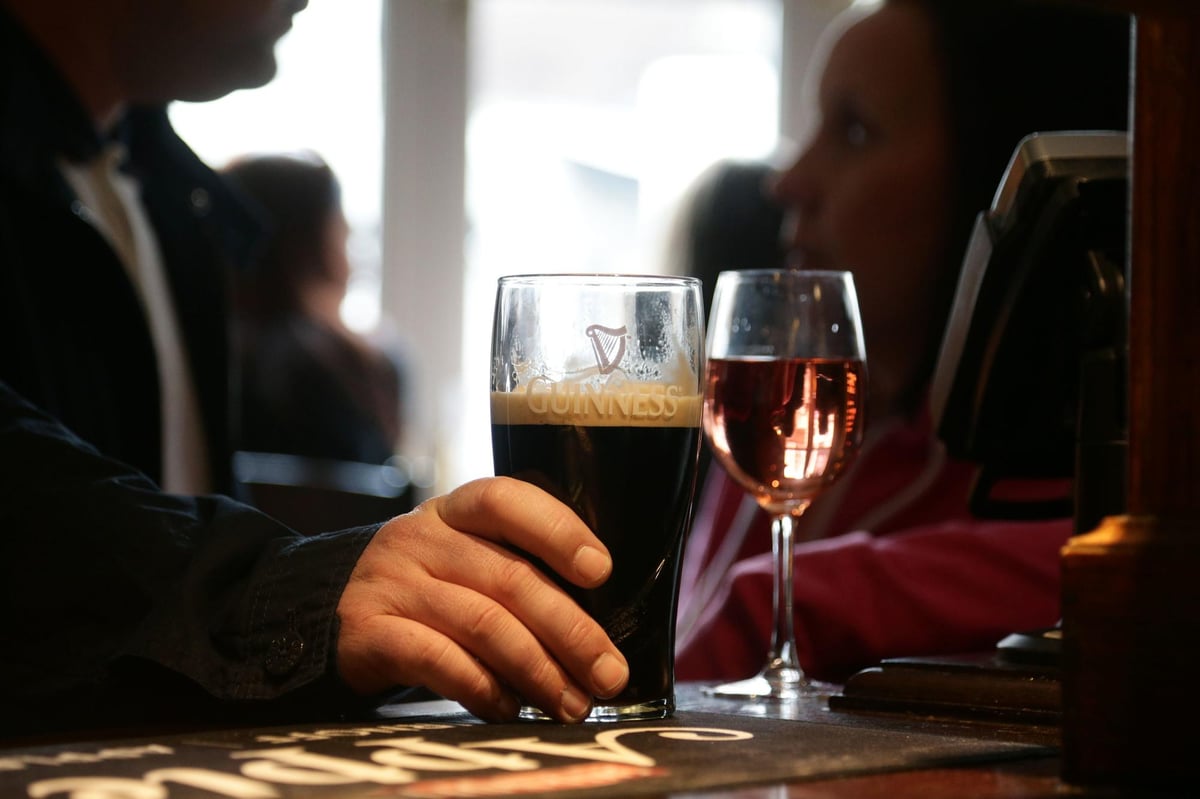By Michelle Townsend
Copyright rsvplive

At the age of 80, fans would forgive Johnny McEvoy for wanting to retire from the music business. But, in the words of the legendary singer and entertainer, he will only stop “when the pilot light goes out”.
Born in Banagher, Co. Offaly in 1945, Johnny is one of Ireland’s best loved folk singers and songwriters. Having turned professional when he was just 18, he has enjoyed an enormously successful career spanning multiple decades.
Johnny always loved music and was inspired by folk – a new and exciting genre in the ‘60s – and took his first foray into music performing as part of folk duo, The Ramblers Two, with Mick Crotty.
Explaining that music was always a part of him, Johnny tells RSVP Country: “I was always creative, even in school. Folk music started out when I was young, about 7 or 8. I just liked stories – and ballads and folk songs tell great stories.
“I worked for an advertising agency but unfortunately – or fortunately for them, depending on how you look at it – I started singing and turned professional at 18.”
Johnny’s big break came in 1966, when his song Muirsheen Durkin topped the charts at number one for three consecutive weeks. Songs synonymous with the singer that followed include Long Before Your Time, Michael, Going To California, The Ballad Of John Williams, Rich Man’s Garden, Never Learned To Dance, The Ballad of Anne Frank and, of course, The Planters Daughter – a personal love song about his late wife, Odette.
Much like today, a career in the music industry wasn’t seen as financially secure when Johnny started out. While his mother was supportive, he admits his father wasn’t too impressed with his son’s choices.
He candidly admits: “Music caused a rift between me and my father. He didn’t pay any attention to it and he wasn’t impressed. But my mother was the type of woman who wouldn’t say it, but she’d encourage you to follow your dreams.
“She never stood in my way. I’d be in a room singing and her head would pop around the door and she would say, ‘That’s nice’. She never praised me that much but I knew she was listening and that was great encouragement for me.
“In later years, my mother got dementia. When she died, I was cleaning out the house and I found every single album and single I ever made, all stacked up. I knew I always had her approval, even if she didn’t say it.”
In 1970, Johnny married the love of his life, Odette. They went on to welcome two children, Jonathan and Alice, and the Offaly native knew he had to step up and provide for his family.
He explained: “Back in the day, it was important to have a ‘hit’ that would keep you on the road touring. I can safely say that I never wrote a song ever in my life with the intention of having a hit, and that is the honest truth.
“But don’t get me wrong, I had to support a family and pay bills, so I did have to pay more attention to what I was doing. I was doing well going around on my guitar, but when I married Odette I thought ‘this isn’t good enough, I have to support her,’ so I started a band.
“The material was not what I wanted to sing, but I said if I wanted to start a family I would have to work six nights a week so I can afford to buy a house and bring up the children. If I stayed as I was I wouldn’t have been able to afford it, even after three number one songs.
“So I had to go out and perform six nights a week and I was making good money, but my family was suffering. Odette wasn’t happy with that saying, ‘You’re never here,’ but what could I do? I was working.”
However, things got to a stage where Johnny wasn’t enjoying what he was doing anymore. He decided to go back to his roots, and even admits he considers his music career starting out 20 years ago, even though he has been working since the ‘60s.
“I decided to go back to the way I wanted to do things. I lost my way and it was making me unhappy,” he says. “I started doing more concerts and theatres and that grew. I started recording my own songs again, and now the way I think of it is that my music career started 20 years ago.”
Johnny sadly lost his wife Odette to ovarian cancer in 2013. He describes this period in his life as a “terribly hard time”, a lot of which he doesn’t remember due to grief, but being a widower taught him an important lesson to focus on doing the things you love.
These days, he likes to tour during the autumn and spring months so he can keep his summers free. And releasing one of his recent albums, called Swallows Return, was a big moment for Johnny.
“I recorded a very simplistic album called Swallows Return,” he says. “I have recorded a lot of albums, and I never listen to them, which isn’t unusual.
“But I wanted to record an album totally with my songs. I wrote 22 and used 14 for Swallows Return. It was the fulfillment of dreams I had for a very long time.”
Johnny’s children, Jonathan and Alice, didn’t follow his footsteps into the music industry. However, one of his grandsons has developed a love for it.
He says: “My grandson is becoming a great drummer. He just has it . Whether he makes a life out of it, that’s up to him, because he’s also very good in school, particularly physics.
“My younger grandson is very creative and highly gifted as well, at animating. I often look at them and think of their talents asking, ‘What do we do with them?’. But I think it’s best to let them find out for themselves what they want to do in life.”
Johnny is often asked for advice from aspiring singers, musicians and songwriters – and always has plenty of wisdom to share with them.
“If you play an instrument, – the banjo, tin whistle, guitar, accordion, whatever it is – you’ll always have friends, anywhere you go in the world,” he says. “People will notice it and it’s a great conversation starter.”
Inspiration, he believes, can be found anywhere.
“I always say to young writers that they need to be switched on. If you’re waiting for inspiration, don’t, because it is like a white dove on your shoulder – if you don’t grab it quickly, it’ll fly away and won’t come back.
“And also, whatever you’re writing, hold onto everything – always. You might write a bit of a verse and think, ‘That’s not for me,’ but don’t throw it away, because in five years you could see it again and turn it into something.”
Although he has scaled back, retirement isn’t an option for Johnny. It’s not for financial reasons either, as the seasoned performer explains music is in his DNA.
He says: “I have to keep going. Retirement will come only when the pilot light goes out. I thought of it, but I can’t do it – It’s not that I can’t actually, it’s that I don’t want to.
“Singing, playing instruments, talking on stage, everything about performing is very much a drug. It’s not just the buzz, it just becomes part of you – much like your arms and legs. It becomes part of your physical body just as much as your mental body.”
He acknowledges the day will come when he will have to stop, but it’s not on his radar right now, adding: “The day of course will come when I have to retire, if my voice goes, if I get too tired, too old, or very ill. But for now, music keeps me alive and I can’t stop.”
Johnny celebrated his milestone 80th birthday in April. Odette’s heartbreaking death taught him to embrace getting older and he enjoyed the perfect low-key celebrations with his family.
He says: “All I wanted was to go to my daughter’s house and just celebrate with my family. I didn’t want to go to a restaurant, I just wanted to sit around a table with my family, like I did as a child on Christmas Day.
“When Odette died, she was dying for three years and had no quality of life with chemotherapy. I then made up my mind that I’d like to keep this life in the music industry until I do die. I don’t fear being 80, I embrace it.”
As for the biggest life lesson he has learned during his 80 years, Johnny shares: “Everything has a beginning and an ending. No matter how big or small your ego is, in the end we are all just stem cells. But it’s also important to remind yourself, there will never be another you. Those are the words I live by every day.”
This interview originally appeared in the summer 2025 issue of RSVP Country.



